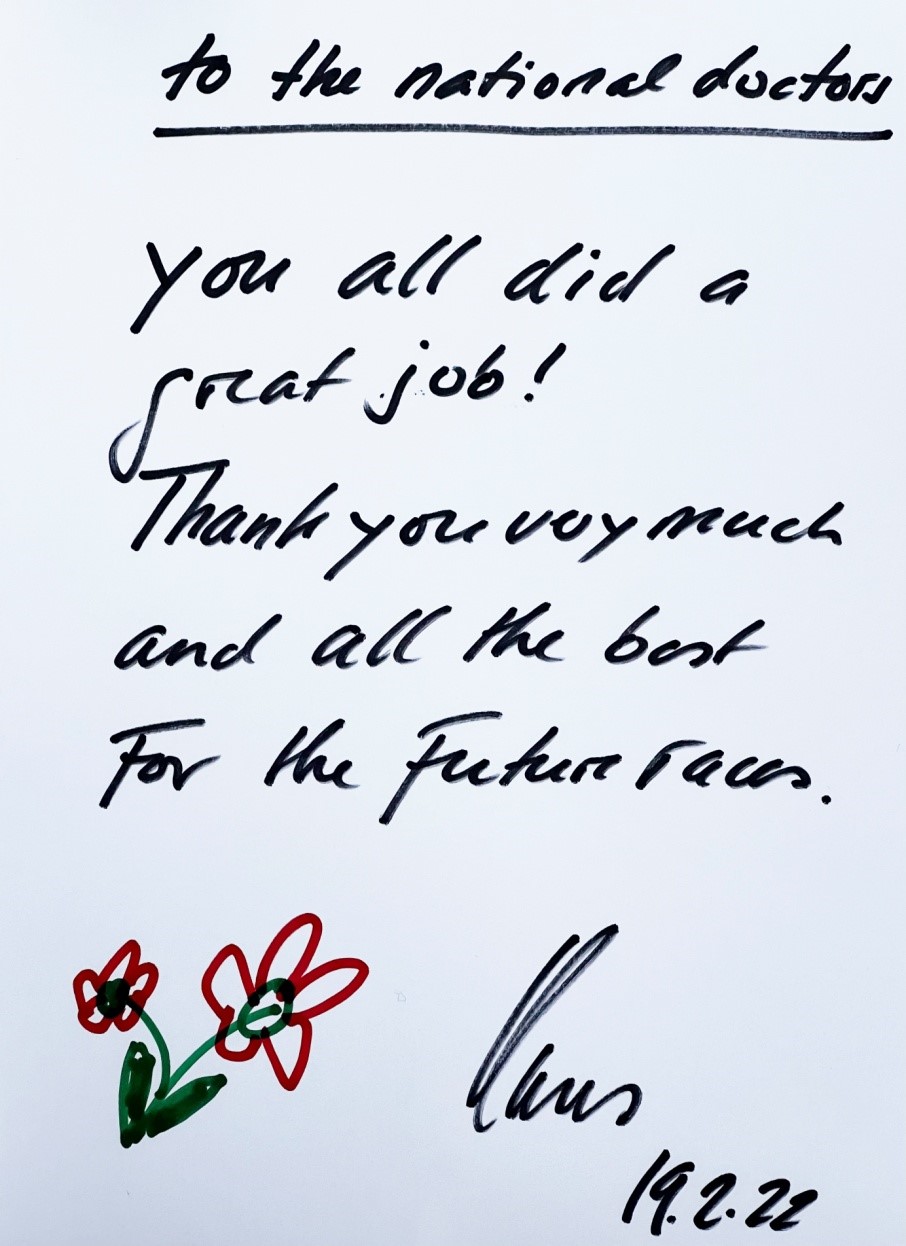The Beijing Winter Olympics opened on February 4, 2022 and closed on February 20. Despite the COVID-19 pandemic, Beijing, the dual Olympic city, pulled off this almost impossible feat with flying colors. The ski doctors on the medical service team for alpine skiing achieved many “firsts” in their 4-year preparations since 2018:
All the medical personnel serving the Winter Olympics passed the first-aid training for advanced cardiovascular life support for the first time;
They designed and optimized the list of equipment and medications in the alpine ski rescue backpack for the first time;
They designed and optimized the injury assessment protocol and transfer protocol for alpine ski rescue for the first time;
They completed the first transfer of the injured on the tracks in cooperation with rescue helicopter;
For the first time, they have undertaken the task of providing medical services for the alpine skiing program in a large-scale international event;
For the first time, they have offered medical services under closed-loop management in the Winter Olympics.
Behind all these “firsts” are the hard work of medical service providers who emanate the spirit of the Winter Olympics and the love for snow sports.
At the “Xuefeiyan” venue on Xiaohaituo Mountain, Yanqing, the medical service team for alpine skiing provided medical services for 30 days without interruption (not even during the Spring Festival), during which period they witnessed 11 gold medals of the Winter Olympics being won and handled 8 cases of serious injuries smoothly.
Injuries during competitions:
Men’s Super-Combined Downhill: a Swiss skier suffered a potentially open fracture of the left distal radius combined with radial artery rupture;
Women’s Downhill: a French skier suffered right anterior cruciate ligament and meniscus injury;
Men’s Downhill: a German skier suffered left upper limb fracture;
Women’s Giant Slalom: a USA skier suffered open fracture of the left lower extremity.
Injuries during training:
A North Macedonian athlete suffered an anterior cruciate ligament injury on Course G2;
An international ski doctor suffered a shoulder dislocation on Course E;
A Polish coach collided with a track staff member (National Technical Officer) and suffered an anterior cruciate ligament injury;
A Peru entourage member suffered a shoulder dislocation and rib fracture on Course G2.
A day of a ski doctor:
4:45: get up;
6:30: get on the bus bound for the Yanqing competition zone, and, after more than an hour’s bumpy drive on winding mountain roads, arrive at the venue and start a day of intense work;
16:30: leave the venue;
19:30: the daily summary meeting: medical service team members discuss the work of each post and sum up experience and lessons, striving to do a better job and ensure safety, then make arrangements for the next day;
21:00-22:00: end of the day.
A team member said: “Even in my dreams, I was thinking hard about the rescue procedures on tracks, and I was sleep talking about calling the command center to report the injury specifics.”
The medical service team must be in place one hour before the first athletes set off and could leave their spot along tracks only after events of the day were all completed; during an event, they needed to stand along the race course and keep an eye on it all the time, which generally lasted 2-3 hours. To spare themselves from the trouble of going to the toilet, the team members drank as little water as they could. At the end of the game, their hands and feet were already frozen, and some of them even had patellar edema.
We are China’s first alpine skiing medical rescue team, and nobody was 100% sure that we would be able to complete our tasks successfully before the games officially started. For that reason, FIS (the International Ski Federation) organized 12 international ski doctors to join us.
As the Winter Olympics drew to a close, Mr. Hans Spring, honorary member of the FIS Medical Committee, spoke highly of our work.
Mr. Peter Brucker from Germany, an international ski doctor who has participated in three Winter Olympics, said: “Before I came to China, I thought you were not very good at skiing, but to my surprise you are great skiers. Although the epidemic prevention and control measures made it difficult for us to communicate and exchange, I had a very pleasant experience and you guys did a great job.”
International ski doctor Jelsche Apel said happily: “You have taken good care of us, and I believe that you are fully capable of providing quality medical services for future events.”
The Winter Olympics is just the beginning, not the end. The people that are involved and their experience in serving such world-class games would become valuable assets for the rapid development of winter sports in China in the future.

Words of appreciation from Dr. Hans Spring to Chinese ski doctors
Written by and picture courtesy of Che Lu from the Department of Anesthesiology
Translator: Liu Haiyan
Editor: Che Lu and Wang Yao
